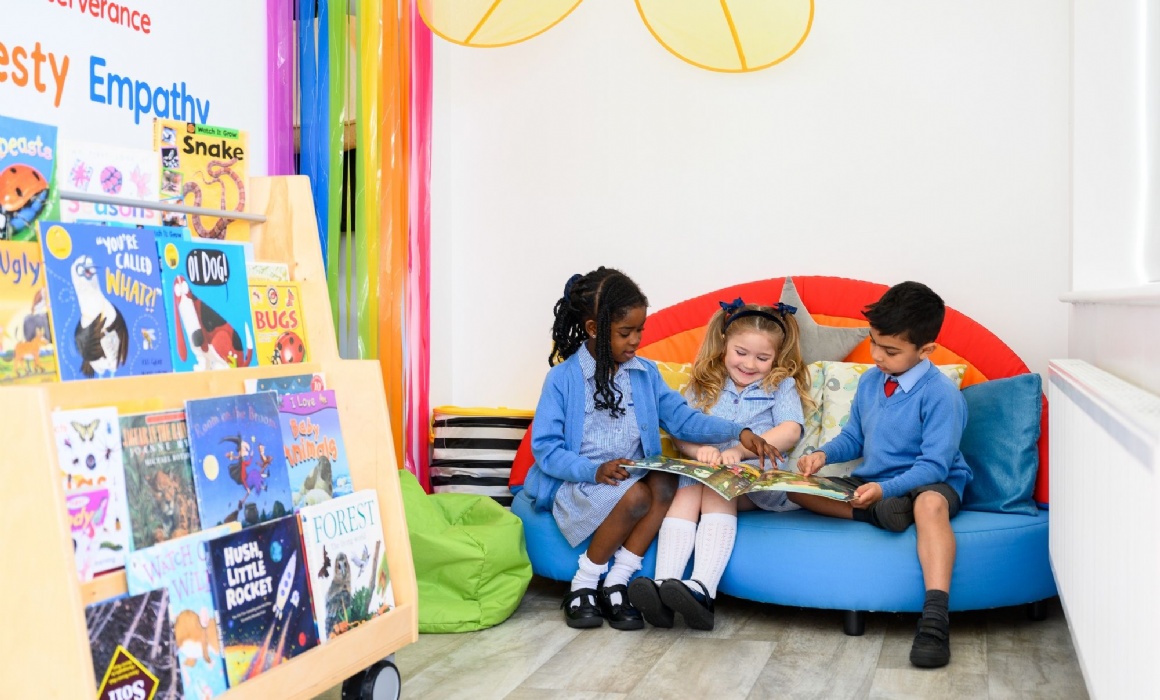Starting The School Journey Together

Preparing for the move to Reception can be daunting, with parents often asking questions like 'What does my child need to start school?' To put minds at ease, our Head of Early Years (Academic), Mrs Jen Bowler, offers her tips for children who are starting school in September.
Reception is a fun and exciting time for children to step into a new chapter of their development. As parents, in support of this next stage of learning, you want to ensure your child has the smoothest transition possible so that they start the academic year prepared and ready to take on new challenges.
Here are some top tips to prepare your child for starting with us in Reception:
- Foster greater independence with day-to-day routines such as putting on their own coats, getting dressed, and putting on shoes.
- Encourage independent toilet and hygiene habits.
- During mealtimes, encourage your child to use a knife and fork correctly and to pour a cup of water from a jug.
- Develop fine and gross motor skills. Playdough and Lego are great activities for strengthening fine motor control. Gymnastics, Yoga, and general outdoor play equipment are great for strengthening core muscles and developing gross motor skills.
- Encourage your child to write their own name – signing birthday cards is a great opportunity for writing! Please ensure your child is not using all capital letters to write their name.
- Get your child to write and mark-make as often as possible – ‘writing’ lists for shopping, labels for their construction models, postcards from holidays, etc! Depending on how often your child has been ‘writing’ at home and in Nursery, will depend on whether they are mark-making or beginning to form letters and words. Whatever level your child is at, keep it fun!
Read lots with your child! Encourage your child to turn pages and say what is happening in the pictures.
- Read lots with your child! Encourage your child to turn pages and say what is happening in the pictures.
- Identify objects that start with different alphabet sounds – do not worry if they don’t know what the letter looks like yet, as being able to hear the sound is more important at first.
- Count reliably to 20 and recognise numbers to 10. Counting objects while out on walks or when driving in the car is a great quick counting activity.
- Use scissors regularly and with greater control and independence.

